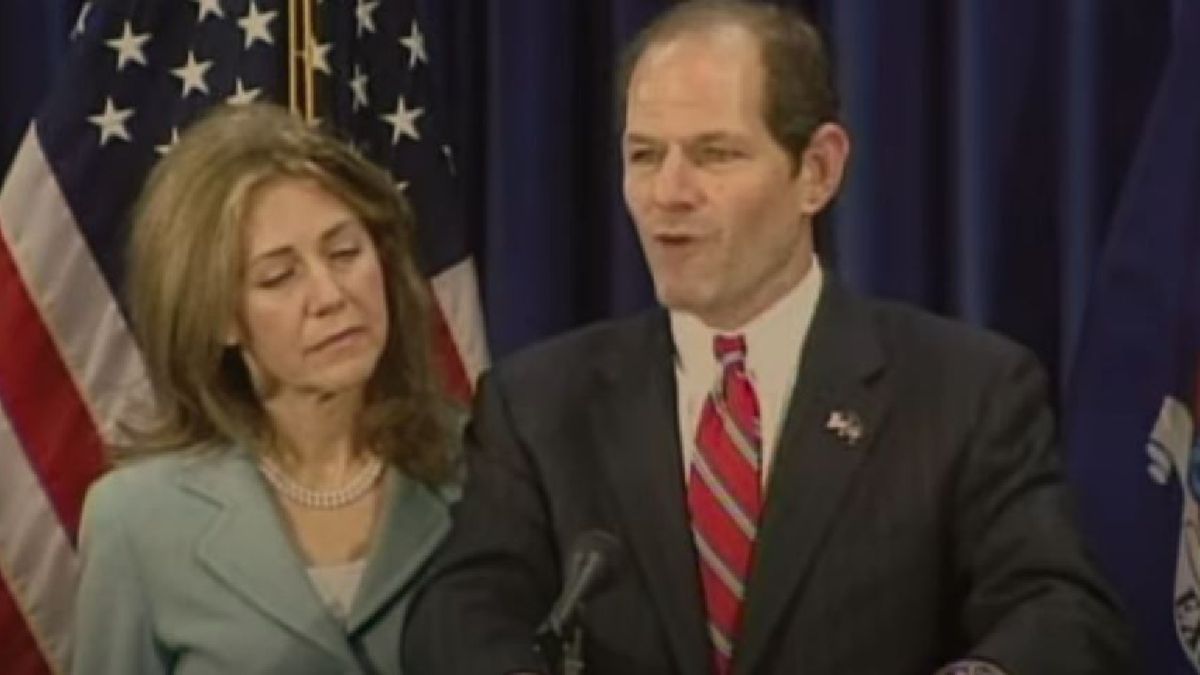TIFF Review: Alex Gibney Finds Even Dirtier Political Scandal In Client 9

With his last feature documentary on Jack Abramoff, Alex Gibney found a little sympathy, or at least some admiration, for the man who might literally be the devil. He's found an equally prickly subject to introduce us to in Client 9: The Rise and Fall of Eliot Spitzer, which is far less the story of the onetime New York Governor's spectacular fall from grace, but an examination of the secret forces that orchestrated his takedown in the name of morality and justice. Gibney clearly likes Spitzer, who is as smart and well-spoken as the filmmaker himself, and while you can argue that Client 9 may go a little easy on its subject, it's also a fascinating look at the hypocrisies of political scandal, not to mention the warren of corruption and idiots known as the New York State government.
The short version of Spitzer's government career is deliciously ironic. The man who ruthlessly went after vice as the New York City district attorney rose to become the Governor of the state, only to resign when it was revealed he patronized one of the very types of high-class prostitution rings he had previously targeted. The long version has the same highlights, though, but as Gibney runs us first through the structure of prostitution rings, then to their symbiotic relationship with the Wall Street traders, we are reminded again that where there is money, sex can't be that far behind. It's a weird turn of irony that Spitzer chose the same kind of prostitutes as the Wall Street bankers he prosecuted as DA, but it's no coincidence at all that, when Spitzer fell from grace, those powerful Wall Street types weren't just the ones rejoicing, but maybe responsible for it all.
It takes accepting a bit of conspiracy to follow Gibney's careful excruciation of both the Wall Street financiers and the Republicans in Albany who probably orchestrated Spitzer's downfall, but a few glaring inconsistencies clearly indicate the the Emperors Club VIP would never have been investigated had Spitzer not been involved. Though Gibney's interviews with Spitzer's many enemies--including Republican political operative Roger Stone and Wall Streeters Hank Greenberg and Ken Langone-- never exactly reveal that they were the hand that pulled the trigger, each rejoices so much in Spitzer's downfall it's not hard to imagine these powerful men played a role somewhere.
Spitzer's detractors are such colorful characters that the man himself would risk being drowned out, but Gibney's many interviews with Spitzer reveal the former governor as a bright and incredibly self-aware man, taking full credit for his idiotic indiscretion but also not allowing it to be the final word on his personality. Spitzer says very little when it comes time to talk about the Emperors Club and the famous call girl Ashley Alexandra Dupre, but it's all there on his face-- the shame, the lingering astonishment that it ever happened, Spitzer's own recognition that he's fallen into the world's oldest pitfall for men in power.
Far more than a puff piece extolling the virtues of a disgraced politician who's is doing a pretty good job on his own of rehabilitating his career, Client 9 is an incisive examination of the political examination that exists right there on the surface the second we stop giggling over sex scandals long enough to notice it. Gibney opens and closes the film with different cover versions of Frank Sinatra's "New York, New York," an ironic use of the sincere song about the manic, corrupt city that made a story like Spitzer's possible. The pugnacious and defensive Spitzer may not be New York's sweetheart, but his rise and fall-- and rise again, it seems-- is our story whether we like it or not.
More Cinema Blend coverage from the 2010 Toronto International Film Festival right here.
CINEMABLEND NEWSLETTER
Your Daily Blend of Entertainment News
Staff Writer at CinemaBlend
Most Popular







